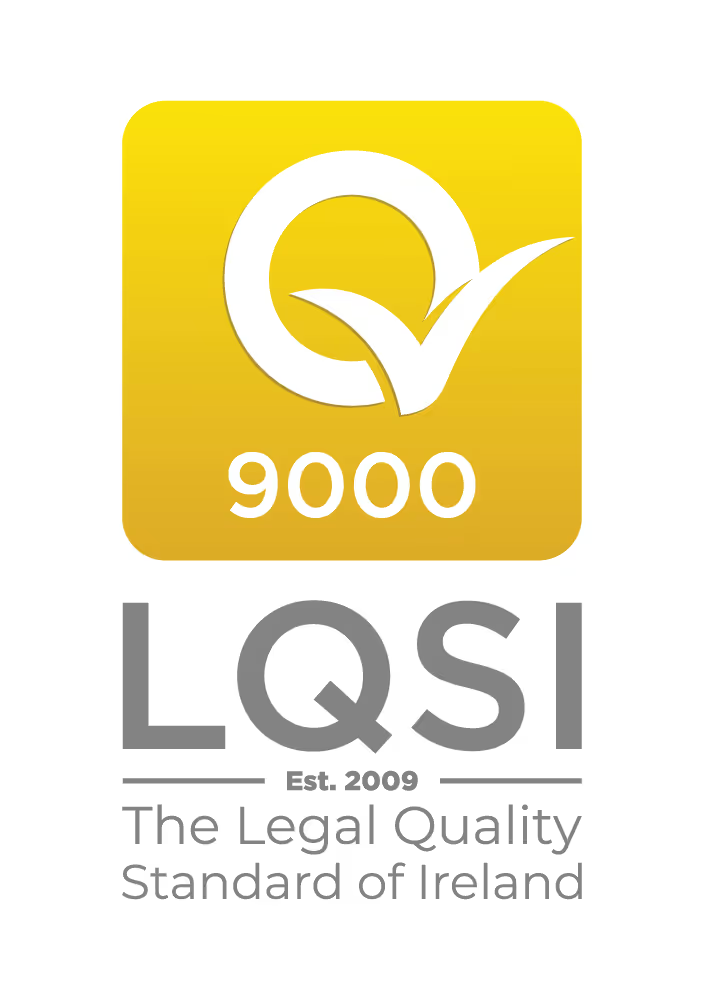BACKGROUND
The Companies (Corporate Governance, Enforcement and Regulatory Provisions) Act 2024 (the “Act”) has recently been signed into law and includes a number of amendments to the Companies Act 2014 (the “2014 Act”) which are designed to enhance the governance regime for Irish companies.
The Minister for Enterprise, Trade and Employment will now need to issue an order declaring a date from which the Act is in force. It is expected that this will occur before the end of the year.
This note summarises some key corporate governance changes to be introduced by the Act.
The Act also includes a number of changes designed to improve and strengthen the company administration, enforcement and insolvency/rescue regimes in Ireland, which are not dealt with in this note.
1. FACILITATION OF VIRTUAL SHAREHOLDER MEETINGS
Save for circumstances where a company’s constitution expressly provides otherwise, the Act will amend the 2014 Act to provide that a company may, by default, hold hybrid or wholly virtual general meetings for shareholders. This amendment was largely sought after to align modern practices with statute following the shift towards conducting business virtually during Covid.
2. SIMPLIFICATION OF EXECUTION OF DEEDS
Ireland is one of the few common law jurisdictions that still has a compulsory requirement for a company to execute deeds and certain other documents under the company seal. This can be a cumbersome process requiring two company officers to execute the same document in wet ink and for the company seal to be affixed next to the signatures.
The requirement to execute deeds under seal has been retained, but the Act includes an amendment to allow companies to execute documents under seal in counterpart, so that the two signatories do not have to physically sign the same document. This reintroduces permanently a measure which was introduced on a temporary basis during Covid and which proved useful in helping to facilitate remote signings.
3. SIMPLIFICATION OF MERGER PROCESS
The 2014 Act introduced a merger regime to allow Irish companies to undertake a statutory merger process which provides for the assets and liabilities of one company to be transferred by operation of law to another company, and the transferring company is then automatically dissolved without the need to place it in liquidation.
For private companies a simplified merger process is available using the ‘summary approval procedure’, which requires the directors of the 2 merging companies to execute a declaration of solvency confirming that in their opinion the surviving entity will be solvent following the completion of the merger. Since its introduction this procedure has proved to be a popular and cost-effective tool to assist with group rationalisation projects for corporate groups with multiple Irish entities.
The Act will introduce a couple of changes which will further enhance the merger process for Irish companies:
(i) Mergers for Designated Activity Companies
Currently the 2014 Act provides that the summary approval procedure can only be used if at least one of the companies involved in the merger is a private company limited by shares (LTD). The LTD is the most common form of corporate entity in Ireland. A less common form of private company in Ireland is a designated activity company (DAC), which is a private company with a restricted purpose clause in its constitution (so useful, for example, for special purpose vehicles which are designed to operate for limited purposes only).
The Act will amend the merger regime so that the summary approval procedure can be used where at least one of the companies is an LTD or a DAC. So it will now be possible for 2 DACs to merge using the summary approval procedure without requiring an LTD to be involved as well.
(ii) Concurrent Mergers by Absorption
The merger structure we see being used most commonly for Irish companies is the ‘merger by absorption’, where a wholly owned subsidiary is dissolved pursuant to the merger and its assets and liabilities are transferred to its parent company. Currently under the 2014 Act if a parent wishes to absorb two or more wholly owned subsidiaries by merger, a separate merger process is required for each subsidiary. The Act will amend the 2014 Act to facilitate the merger by absorption of multiple subsidiaries in one transaction. This amendment will remove the necessity for multiple mergers to run concurrently in this scenario.
At Flynn O’Driscoll, we are experts in Irish company law and regularly advise on corporate governance, corporate structuring and restructuring matters. This article is for guidance purposes only and does not constitute legal advice.
Update (27/11/2024)
The Minister for Enterprise, Trade and Employment has now provided for an enactment date of the 3rd of December 2024 for the above changes. See S.I. No. 639/2024 - Companies (Corporate Governance, Enforcement and Regulatory Provisions) Act 2024 (Commencement) Order 2024 for full list of enacted provisions.








